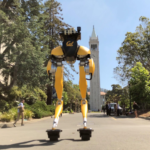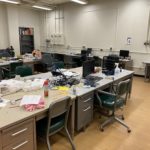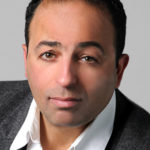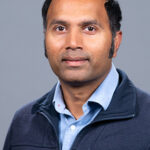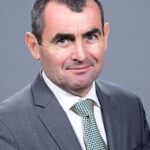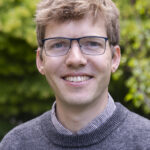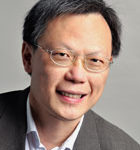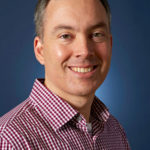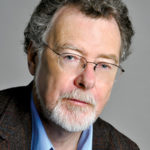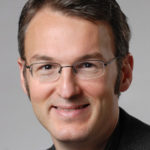Our research lies at the intersection of applied Nonlinear Control and Hybrid Dynamic Robotics. Our goal is to design controllers for achieving dynamic, fast, energy-efficient, and robust maneuvers on hybrid and underactuated systems such as legged and aerial robots. This will require addressing the challenges of high degree-of-freedom, high degree-of-underactuation, nonlinear and hybrid systems with …
Research Interest
Dynamics Lab
Our research focuses on the dynamics of mechanical systems and frequently draws upon rigid body dynamics, continuum mechanics, robotics, and biology. Current interests include discrete elastic rods, the dynamics of flexible risers, models for soft robot locomotion, and fluid-structure interaction. We use a combined analytical, computational, and experimental approach with the goal of elucidating the …
Applied Simulation Laboratory
A warm and comfortable place for theoretical and computational research.
Tarek I. Zohdi
Will C. Hall Family Chair in Engineering
Associate Dean for Research, College of Engineering
Will C. Hall Endowed Chair
Chair of the UCB Computational & Data Science & Engineering Program
Professor of Mechanical Engineering
University of California, Berkeley
Berkeley, CA 94720-1740
zohdi@berkeley.edu
For more information see: ZOHDI-BIOGRAPHY
Professor Zohdi's CV
Research Group Website
Books and Publications
Associate Dean for Research, COE
Editor CMAME
Editor-in-Chief, Comp. Particle Mechanics
Chair, D.E. in Comp. and Data Science Eng. Program
Faculty Scientist, Lawrence Berkeley National Lab
Director, UC-DEWA
Director, Fire Research Group
Director, Next Generation Food Systems Center
Faculty Director, Masters of Advanced Studies-Engineering
Koushil Sreenath
Vice Chair of Graduate Studies
Associate Professor of Mechanical Engineering
University of California, Berkeley
Berkeley, CA 94720-1740
koushils@berkeley.edu
For more information see: Hybrid Robotics
Current Classes Taught
Koushil Sreenath is an Assistant Professor of Mechanical Engineering, at UC Berkeley. He received a Ph.D. degree in Electrical Engineering and Computer Science and a M.S. degree in Applied Mathematics from the University of Michigan at Ann Arbor, MI, in 2011. He was a Postdoctoral Scholar at the GRASP Lab at University of Pennsylvania from 2011 to 2013 and an Assistant Professor at Carnegie Mellon University from 2013 to 2017. His research interest lies at the intersection of highly dynamic robotics and applied nonlinear control. His work on dynamic legged locomotion on the bipedal robot MABEL was featured on The Discovery Channel, CNN, ESPN, FOX, and CBS. His work on dynamic aerial manipulation was featured on the IEEE Spectrum, New Scientist, and Huffington Post. His work on adaptive sampling with mobile sensor networks was published as a book entitled Adaptive Sampling with Mobile WSN (IET). He received the Best Paper Award at the Robotics: Science and Systems (RSS) Conference in 2013, and the Google Faculty Research Award in Robotics in 2015.
Research Description:
Hybrid Dynamic Robotics, Applied Nonlinear Control, Dynamic Legged Locomotion, Dynamic Aerial Manipulation
Key Publications:
To view a list of Professor Sreenath’s publications, please click here.
Oliver M. O’Reilly
Distinguished Professor of Mechanical Engineering
Vice Provost for Undergraduate Education
University of California, Berkeley
Berkeley, CA 94720-1740
oreilly@berkeley.edu
(510) 642-0877
For more information see: Dynamics Lab
Current Classes Taught
Oliver M. O’Reilly is the Vice Provost for Undergraduate Education, the Faculty Athletics Representative, and a Distinguished Professor of Mechanical Engineering at the University of California at Berkeley
He received his B.E. in Mechanical Engineering from the National University of Ireland, Galway (NUIG). Subsequently, he received his M.S. and Ph.D. degrees in Theoretical and Applied Mechanics from Cornell University. At Cornell, he studied under Phil Holmes and Frank Moon. After spending two years as a postdoc at the Institut für Mechanik at ETH-Zürich under Jürg Dual, he joined the faculty in Mechanical Engineering at Cal in 1992. He has previously served as the Chair and Vice Chair of the Berkeley Division of the Academic Senate and as an Associate Dean for Graduate Education in the Division of Computing, Data Science, and Society.
His interests span the fields of continuum mechanics and nonlinear dynamics. He has a broad range of specializations including directed (or Cosserat) theories of deformable bodies, constrained rigid body dynamics, contact mechanics, linear and nonlinear vibrations and linear and nonlinear dynamics of deformable bodies. He has applied these interests to a range of applications including soft robots, MEMS resonators, brake squeal, the dynamics of toys, motorcycle navigation, axially moving media, artificial and natural satellites, spinal kinematics and vehicle collision dynamics.
O’Reilly has coauthored over 100 archival journal articles, written three textbooks, coauthored a monograph, and is a co-inventor on two patents. He has also received multiple teaching awards including U.C. Berkeley’s Distinguished Teaching Award in 1999, the Pi-Tau-Sigma Professor of the Year Award in 2003 and the Tau-Beta-Pi Outstanding Faculty of the Year Award in 2013. He is also a recent recipient of the Berkeley Faculty Service Award.
To view Professor O’Reilly’s CV, please click here.
Research Description:
Dynamics, Vibrations, Continuum Mechanics
Key Publications:
To view a list of Professor O’Reilly’s publications, please visit the Dynamics Lab website.
Mark W. Mueller
Associate Professor of Mechanical Engineering
5136 Etcheverry HallUniversity of California, Berkeley
Berkeley, CA 94720-1740
mwm@berkeley.edu
(510) 642-3270
For more information see: HiPeR Lab
Current Classes Taught
Mark W. Mueller received a B.Eng. in Mechanical and Aeronautical Engineering at the University of Pretoria in South Africa in 2008. With a scholarship from the Swiss Federation, he continued to his M.Sc. and Dr. Sc. in Mechanical Engineering at the ETH Zurich, in 2011 and 2015, respectively. He joined the Mechanical Engineering Department at UC Berkeley in August 2016.
Research Description:
Unmanned Aerial Vehicles, dynamics and control; motion planning and coordination; state estimation and localization.
Key Publications:
For a list of Professor Mueller’s publications, please click here.
Fai Ma
Professor of Applied Mechanics
6127 Etcheverry HallUniversity of California, Berkeley
Berkeley, CA 94720-1740
fma@berkeley.edu
(510) 643-6527
For more information see: Current Classes Taught
To view Professor Ma’s CV, please click here.
Research Description:
Dynamical Systems with Inherent Uncertainties, Vibration, Damping and Hysteresis
Key Publications:
To view a list of Professor Ma’s publications, please click here.
David Horsley
Adjunct Professor
Swarm Lab, 490 Cory HallUniversity of California, Berkeley
Berkeley, CA 94720-1740
dahorsley@ucdavis.edu
For more information see: Berkeley Sensor & Actuator Center
MEMS Laboratory
UC Davis Faculty Page
Current Classes Taught
David A. Horsley received his PhD in Mechanical Engineering from the University of California, Berkeley, in 1998. From 1998 to 2003, he held research and development positions at Dicon Fiberoptics and Hewlett Packard Laboratories and helped to co-found Onix Microsystems, a manufacturer of fiber-optic switching components. Since 2003, he has been a Professor in the Department of Mechanical and Aerospace Engineering at the University of California, Davis, and he is a Co-Director of the Berkeley Sensor and Actuator Center (BSAC), the National Science Foundation’s Industrial/University Collaborative Research Center (I/UCRC) focused on MEMS research. Professor Horsley is co-founder and CTO of Chirp Microsystems Inc., a manufacturer of ultrasonic sensors using MEMS technology, and a co-founder of Picosense Inc, a developer of low-noise magnetoresistive sensors. He was the Co-Chair of the 2016 IEEE Sensors Conference and the 2017 TRF Napa Microsystems Workshop. Dr. Horsley is a recipient of the National Science Foundation’s CAREER Award, the Outstanding Junior Faculty Award at UC Davis, the 2016 NSF I/UCRC Association’s Schwarzkopf Award for Technological Innovation, and has authored or co-authored over 150 scientific papers and holds over 20 patents.
Research Description:
Microelectromechanical systems (MEMS), ultrasonics, piezoelectric micromachined ultrasonic transducers (PMUTs), piezoelectric sensors and actuators, inertial and acoustic sensors, magnetic sensors, optical MEMS, dynamics and control issues in MEMS.
Key Publications:
For a list of Professor Horsley’s publications, please click here.
James Casey
Professor of Mechanical Engineering
6125 Etcheverry Hall, Mailstop 1740University of California, Berkeley
Berkeley, CA 94720-1740
jimcasey@berkeley.edu
(510) 642-2863
For more information see: Current Classes Taught
Research Description:
Continuum mechanics, plasticity, approximate nonlinear theories of elasticity, dynamics of nearly rigid bodies.
Key Publications:
To view a list of Professor Casey’s publications, please click here.
David M. Auslander
Professor of the Graduate School
Professor of the Graduate School
5120 Etcheverry HallUniversity of California, Berkeley
Berkeley, CA 94720-1740
dma@me.berkeley.edu
(510) 642-4930
For more information see: Current Classes Taught
Research Description:
Automatic control system design, mini-microcomputer system bioengineering, modeling and simulation of dynamic systems, process control.
Murat Arcak
Professor of Mechanical Engineering
Professor of Electrical Engineering
Professor of Mechanical Engineering
Professor of Electrical Engineering
University of California, Berkeley
Berkeley, CA 94720-1770
arcak@berkeley.edu
(510) 642-4804
For more information see: Arcak Lab
Current Classes Taught
Professor Murat Arcak received the B.S. degree in Electrical Engineering from the Bogazici University, Istanbul, Turkey (1996) and the M.S. and Ph.D. degrees from the University of California, Santa Barbara (1997 and 2000). He received a CAREER Award from the National Science Foundation in 2003, the Donald P. Eckman Award from the American Automatic Control Council in 2006, the Control and Systems Theory Prize from the Society for Industrial and Applied Mathematics (SIAM) in 2007, and the Antonio Ruberti Young Researcher Prize from the IEEE Control Systems Society in 2014. He is a member of SIAM and a fellow of IEEE.
Research Description:
Dynamical systems and control theory with applications to synthetic biology, multi-agent systems, and transportation.
Key Publications:
To view a list of Professor Arcak’s publication, please click here.


